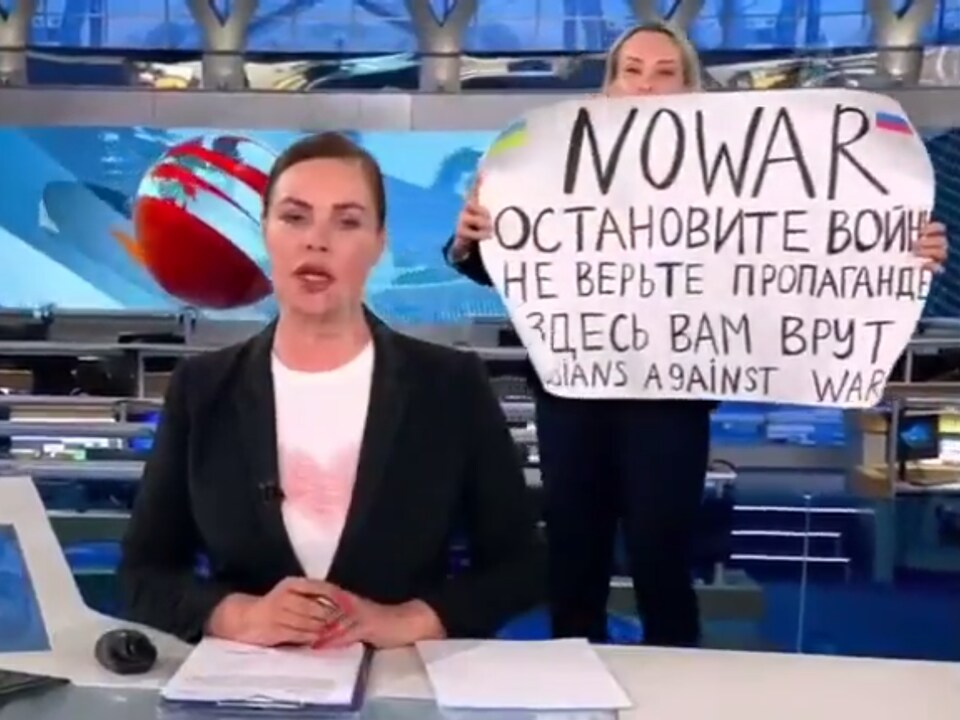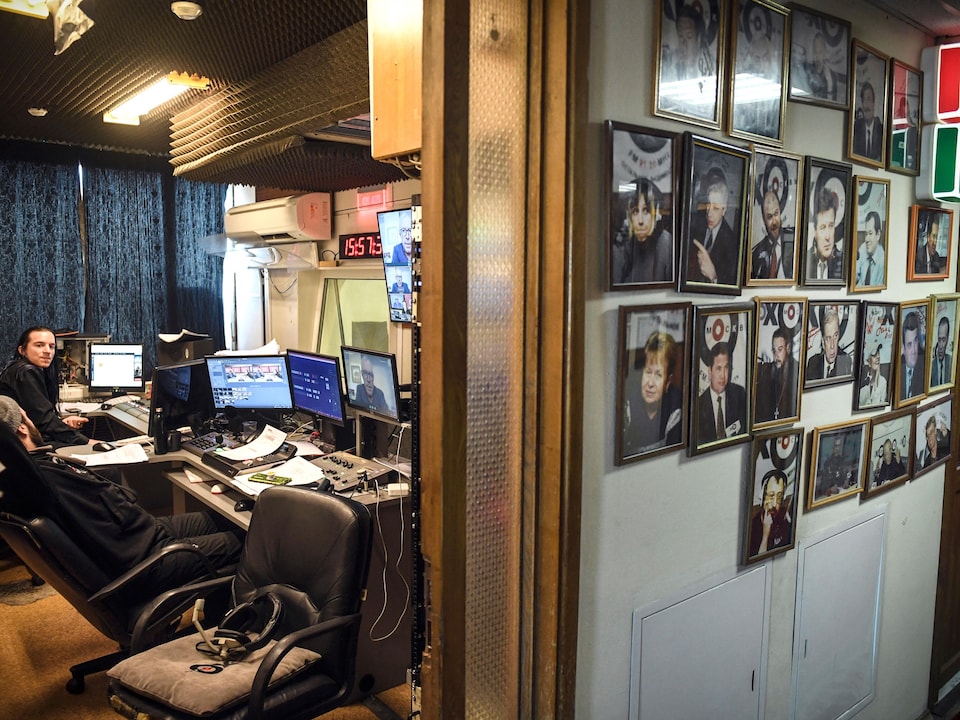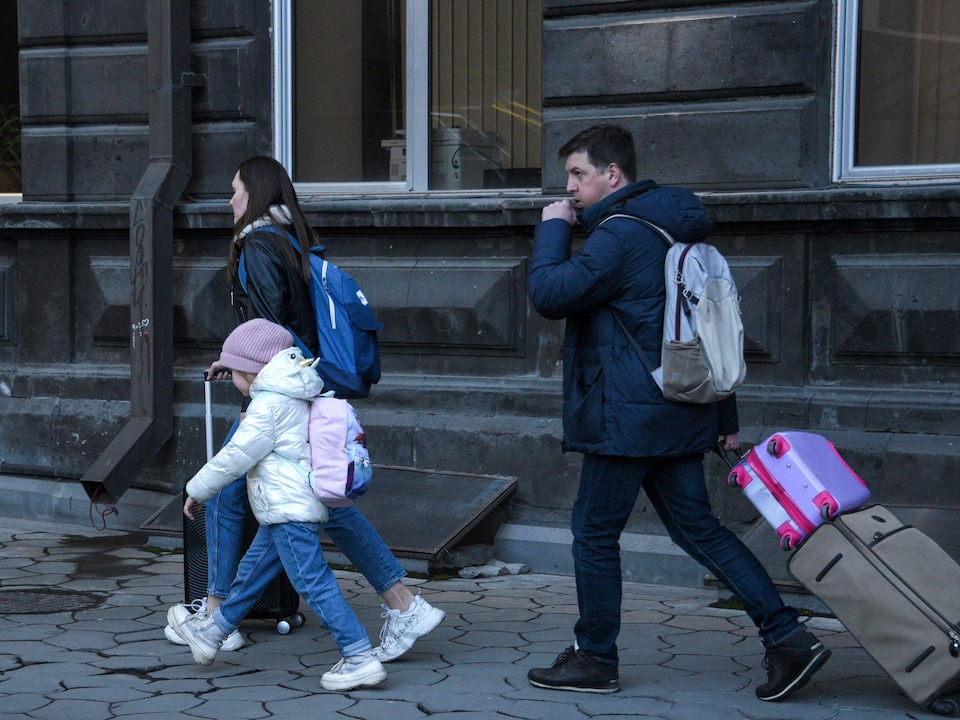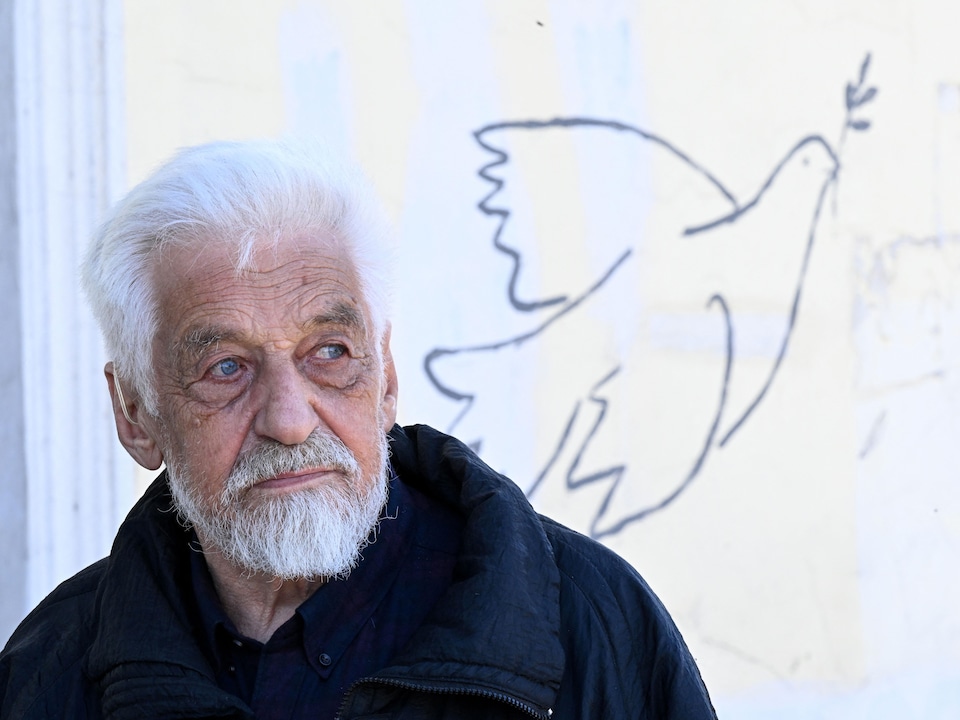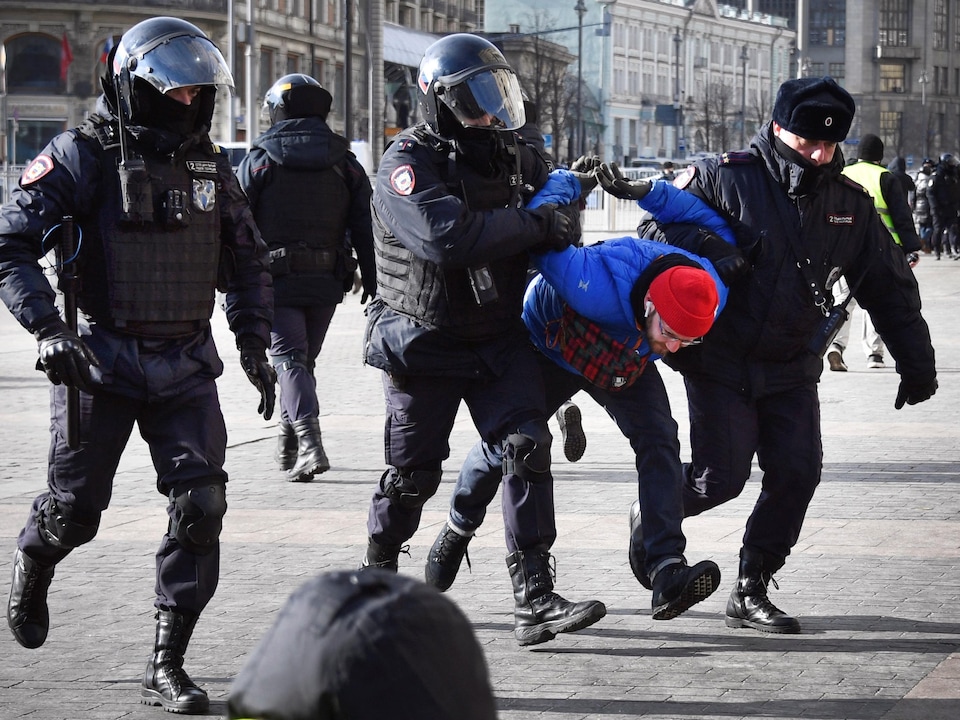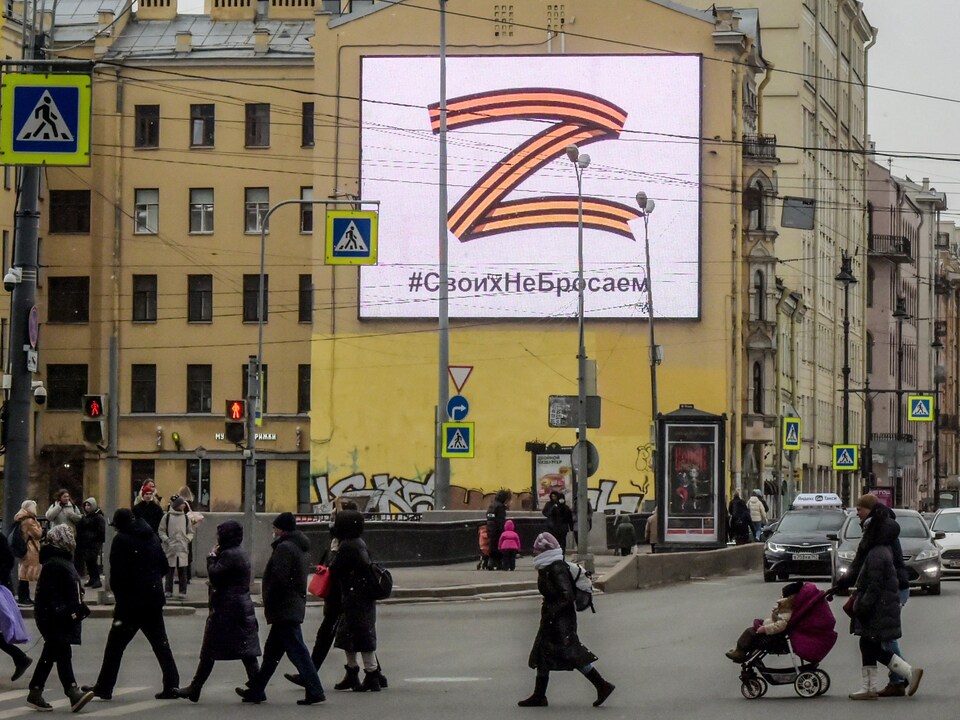Two months after the invasion of Ukraine, the Russians are living in a period of more intense repression. Propaganda, denunciation and disinformation are back in effect, as in the days of the Cold War.
Since the enactment on March 4 a law providing up to 15 years in prison for anyone who publishes misleading information in the army, a blanket of lead fell on the country.
Military censorship has had disastrous consequences for freedom of the press, underlined by Jeanne Cavelier, head of the Reporters Without Borders (RSF) office in Eastern Europe and Central Asia. Most independent media can be blocked or forced to suspend their activities. Hundreds of journalists have left the country or are trying to do so.
The national press was targeted, as was the local media. RSF reports the case of some journalists or media owners who were sentenced for articles insulting the Russian army and was forced to pay heavy fines. This is particularly the case of Sergueï Mikhaïlov, of the weekly Listok, by Mikhail Afanasiev, from the online newspaper New Focusand Maria Ponomarenko, from the news site RusNews, who faced several years in prison.
Several journalists were fined or jailed for breaking the law on March 4 or March 22, aimed at punishing misleading information in the action of Russian state bodies abroad. Others were arrested for covering anti -war protests.
These laws make it possible to cover all types of situations, Jeanne Cavelier explains. Like all laws targeting freedom of expression in Russia, they are extremely vague. If you report on the price increase saying that it is the consequence of Russia’s special operation in Ukraine, it can be considered discrediting the Russian army.
” Everything is subject to the interpretation of the judges, who are subject to the pressures of power. This is the law of arbitrariness. “
Several foreign media, including CNN, the New York Times and Radio-Canada, preferred to withdraw their correspondents in Russia so that they would not be exposed to criminal prosecution.
Like journalists, ordinary citizens who use social networks can also be fined or imprisoned for sharing information that is not pleasing to the authorities. The Russian-language site Meduza, based in Latvia, reports the case of an 11-year-old child from the Volgograd region who was imprisoned for having discredited the Russian army on social networks.
It is freedom of expression as a whole that is targetedMs. believes. Cavelier.
RSF is concerned about the imminent enactment of another law that plans to revoke the licenses of Russian and foreign media and immediately block them if they broadcast. wrong information in the army, if they disrespect to the authorities or if they call for participation in unauthorized events. Foreign media can also be blocked as revenge whether their state of origin restricts access to Russian media.
Canadian and European media could be targeted, as Canada and the European Union have blocked access to state media websites RT and Sputnik.
From the beginning of its offensive in Ukraine, Russia has banned many local and foreign media, as well as the social networks Facebook, Instagram and Twitter.
” Russia will be an information black hole. “
To help journalists in exile reorganize and resume their work, RSF set up a dedicated fund that enabled the popular newspaper. Novaya Gazeta (which suspended its activities in March) to be reborn and start its online publications under the name of Novaia Gazeta Europe.
The idea is to try to make sure that the Russian press continues to exist, that we can continue the investigation, even outside the country.explanation by Jeanne Cavelier.
Mass exile
This leaden screed is driving not only journalists, but also thousands of Russians to flee their country.
More than 50,000 Russians went into exile in Georgia or Armenia, neighboring countries that do not require entry visas, and tens of thousands more are in Azerbaijan, Turkey, Greece or Bulgaria, in particular.
It is a real exodus comparable to the exodus after the Russian revolution in 1917observation by Vera Ageeva, doctoral student at Sciences Po Paris.
The intelligentsia, but also skilled workers, are leaving, Ageeva said, citing the example of artificial intelligence specialists where at least 70,000 planned to leave in April, according to the Russian Electronic Communications Association. Russian company Yandex, which specializes in the field, has even opened an office in Yerevan, Armenia, to allow its deported employees to continue working remotely, Vera Ageeva said.
He himself left St. Petersburg in 2019, feeling that the situation is getting worse. I am a university professor, and when I reflect on my academic career in Russia, I am a bit pessimistic because I see that for Russia, at the political level, there are two scenarios: a bad scenario and a worse one. I don’t see how this diet will end so well.
A fact also mentioned by Anne Le Huérou, lecturer at the University of Paris Nanterre, associated with the Center for Studies of the Russian, Caucasian and Central European Worlds. Among those leaving were the protagonists, young men who were old enough to do their military service and afraid to be sent to war, as well as many researchers, intellectuals and journalists, who were trying to recreate a kind of the exile community.
Go or stay? The choice is not easy.
Are those who leave cowards? Or do those who stay stay because they work together? asked Anne Le Huérou. This is a hotly debated issue in Russia.
Deportation is not possible for everyone. Starting a new life elsewhere, when you only speak Russian or don’t have a diploma, it’s far from easy, Vera Ageeva explains.
There are some people who have elderly parents that they should take care of. Others have children, he describes. And there are others who say: we don’t want to leave our country, why do we need more? We want to live here. We are against everything that happens, but this is our home, this is our homeland, this is our family here.
The father of one of his friends, a medical specialist, was arrested for demonstrating against the war. He faces a prison sentence. But he did not want to leave, because he knew no foreign languageexplained by Ms. Ageeva.
Alongside outright opponents, others tolerate the situation even if they disagree with the authorities, Anne Le Huérou believes.
” There are red lines that are not the same for everyone. “
Many people know that [le discours des autorités] in vain, but unwilling, or without the courage, to take the step of a conflict, a form of conflict, even exile, if they have a good job, a house, children studying, a plan in racing, etc., he says. They keep hanging there.
Others protect themselves, through relatively unconscious mechanisms, Ms. believes. Le Huérou. It’s huge [la propagande] that to stop believing means that everything you once believed will crumble. Because if we are being lied to today, others are also being lied to. There is a confrontation with reality that is almost impossible.
A police state
Especially young people are openly showing their opposition to war, Vera Ageeva said.
I continue to give distance courses in Russia, I talk to students and most of them are against the war, he says. They tell me that dialogue with their parents is detrimental. Parents repeat TV propaganda word for word. For young people, it’s pathetic because they love them, but they can’t agree with their parents supporting the war and justifying everything the Putin regime does.
Anne Le Huérou also said she heard very difficult case within the families of people who almost deprive their children or call them fifth row because they are opposed to war.
However, its nuances, there are also many young people who follow the propaganda of the regime. I have a colleague who taught at the University of Saint Petersburg, and he told me he needed to drink a tranquilizer after class so [l’ambiance était difficile avec] students convinced by propaganda.
” This is not just a story of the old against the youth, the working class against the elite. “
What is clear is that an oppressive climate is entering. Following President Vladimir Putin’s statement on television on March 16 denouncing a fifth set of national traitors and claims a self -cleaning of society, cases of denunciation are on the rise.
Western media reports several cases of teachers being criticized by their students for expressing their disapproval of the war.
I have friends at university who know that they should no longer talk to their colleagues, who are mostly for war, refers to Anne Le Huérou. They may not be in a hurry to report them, but if one day they have a problem, they won’t hesitate to do so to save their own skins.
Vera Ageeva recounted hearing cases of people being criticized by their office colleagues for their opposition to the war or of parents of students being criticized by other parents or teachers for objecting to letter posting. Z, symbol of support for the Russian army, at school.
It was a Soviet reflex, he added. The government sees that there is a movement in society against the war and it tries to control it. But because the police can’t control every word of every person, if people report to each other, it helps the government.
” Putin built a police state. You can’t express yourself, it’s a risk to your life. “
Vera Ageeva has little hope of seeing change in her country. On the one hand, the masses of Russians are not really affected by the conflict, on the other hand, Vladimir Putin has locked the system well, he believes.
He knows how to convince people that democracy is dangerous and unstable. So the people will not revolt.
Source: Radio-Canada
